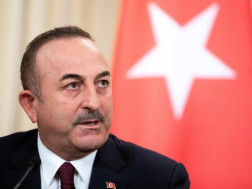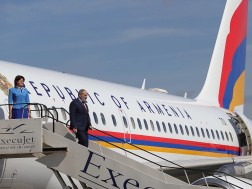Moscow entrepreneurs endured losses due to the non-working days from October 28 to November 7, which can be estimated at several billion rubles. Particularly, those renting stores in shopping centers shed 10 bln rubles ($138 mln), with beauty salons losing approximately the same amount. Fitness clubs forfeited 1.9 bln rubles ($26 mln), while florists saw losses of up to 500 mln rubles ($6.9 mln), experts interviewed by TASS said.
"Renters’ revenue losses during the non-working days exceeded 10 bln rubles," President of the Union of Shopping Centers Bulat Shakirov said. Meanwhile, "the amount of abandoned trade and rentable areas during the year soared by 30% due to the dissolution of rent agreements with entrepreneurs unable to pay over the coronavirus-related restrictions," the head of the public reception office at Moscow’s business ombudsman and Managing Partner of the consulting company Averta Group Aleksei Sharov noted.
According to President of the Association of Fitness Industry Operators Olga Kiseleva, the city’s sector "lost 1.9 bln rubles ($26 mln)." "The recovery will take quite a long time because the flow of clients to Moscow’s fitness clubs has seriously dropped amid instability related to the restrictions imposed earlier. Fearing new restrictions, people are not rushing to fitness clubs," she explained.
Board member of the Association of Flower Retailers Ivan Utenkov said that initially the sector estimated losses at around 1 bln rubles ($13.7 mln) in the period from October 28 to November 7. "However, as Moscow authorities permitted stores using pickup points to function it became possible to reduce losses multi-fold," he said, adding that "the real losses of the sector on the Moscow market are estimated at 400-500 mln ($5.5 mln - $6.9 mln) rubles a month."
Beauty salons in Moscow lost 400,000-700,000 rubles ($5,500-$9,600) each during non-working days, with their total number in the city nearing 16,500, beauty sector’s ombudsperson Nina Litvinova said. "After this lockdown, longing for services, guests are providing full booking. However, the month will close with revenue 30-40% lower than last year in any case," she added.
The occupancy of hotels also declined during the non-working days in Moscow, standing at 25-30% of its usual figures, according to the public ombudsman for the hotel business Igor Lavrik. "Rooms were booked pracitcally on a same day basis, which demonstrates that a high percentage of guests came to Moscow for business meetings, or for business trips, meaning out of necessity. The situation only started to improve from November 10, whereas today we have reached 50% occupancy," he said, adding that the revenues of Moscow hotels for October 2021 are expected to recover closer to early December, "unless there is another wave of the coronavirus or economic recession."
City’s Business Rights Commissioner Tatyana Mineyeva estimates the revenues of catering businesses that have delivery and the possibility of providing take-out orders during non-working days at 30-40% of the usual earnings.
















